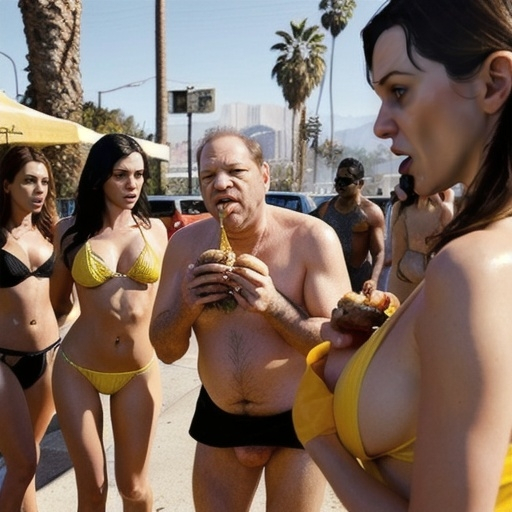Early Life and Upbringing
Harvey Weinstein was born on March 19, 1952, in Queens, New York, into a Jewish family. His father, Max Weinstein, was a diamond cutter, while his mother, Miriam, was a homemaker. Growing up in a modest household, Harvey and his younger brother, Bob, shared a passion for movies from an early age. This passion eventually led them to pursue careers in the film industry.
Education and Early Career
Weinstein attended John Bowne High School and later the University at Buffalo, where he developed a keen interest in film production. Alongside his brother Bob, he started organizing rock concerts, which provided them with the initial capital to enter the movie business. Their first venture, Harvey & Corky Productions, was a concert promotion company that laid the groundwork for their future endeavors in the entertainment industry.
Launch of Miramax Films
In 1979, Harvey and Bob Weinstein founded Miramax Films, named after their parents, Miriam and Max. The company initially focused on distributing independent and foreign films, but it quickly gained a reputation for producing critically acclaimed and commercially successful movies.
Top Movies Produced by Miramax and the Weinstein Company
Miramax Films and later The Weinstein Company produced and distributed many iconic films, some of which include:
- Pulp Fiction (1994) – Directed by Quentin Tarantino
- Good Will Hunting (1997) – Directed by Gus Van Sant
- Shakespeare in Love (1998) – Directed by John Madden
- The English Patient (1996) – Directed by Anthony Minghella
- Chicago (2002) – Directed by Rob Marshall
- The King’s Speech (2010) – Directed by Tom Hooper
- Silver Linings Playbook (2012) – Directed by David O. Russell
- Django Unchained (2012) – Directed by Quentin Tarantino
- The Artist (2011) – Directed by Michel Hazanavicius
- Gangs of New York (2002) – Directed by Martin Scorsese
Scandals, Controversies, and Lawsuits
Harvey Weinstein’s career has been marred by numerous scandals, controversies, and lawsuits, the most significant of which are:
- Sexual Harassment and Assault Allegations: In October 2017, The New York Times and The New Yorker published detailed reports accusing Weinstein of sexual harassment, assault, and rape. These allegations spanned over three decades and involved numerous actresses, models, and employees.
- #MeToo Movement: The Weinstein scandal played a pivotal role in igniting the #MeToo movement, where countless women and men shared their experiences of sexual harassment and assault. This movement led to a broader conversation about power dynamics and sexual misconduct in various industries.
- Legal Battles: Weinstein faced multiple lawsuits and criminal charges. In 2020, he was convicted of rape and sexual assault and sentenced to 23 years in prison. He continues to face additional charges in other jurisdictions.
- Financial Mismanagement: There were allegations of financial mismanagement and misconduct within The Weinstein Company, leading to its bankruptcy and subsequent sale.
- Intimidation and Blacklisting: Weinstein was accused of using his influence to intimidate and blacklist individuals who spoke out against him, further showcasing the toxic power structures in Hollywood.
Loss of Public Trust
The public’s trust in Harvey Weinstein eroded significantly following the revelations of his predatory behavior. The #MeToo movement shed light on the systemic abuse of power in the entertainment industry, with Weinstein becoming a symbol of such exploitation. The extensive media coverage of his crimes and the testimonies of numerous victims painted a picture of a man who used his position to prey on vulnerable individuals.
Harvey Weinstein’s story is one of immense rise and catastrophic fall. While his influence on the film industry is undeniable, it is overshadowed by his reprehensible actions and the pain he inflicted on countless individuals.

